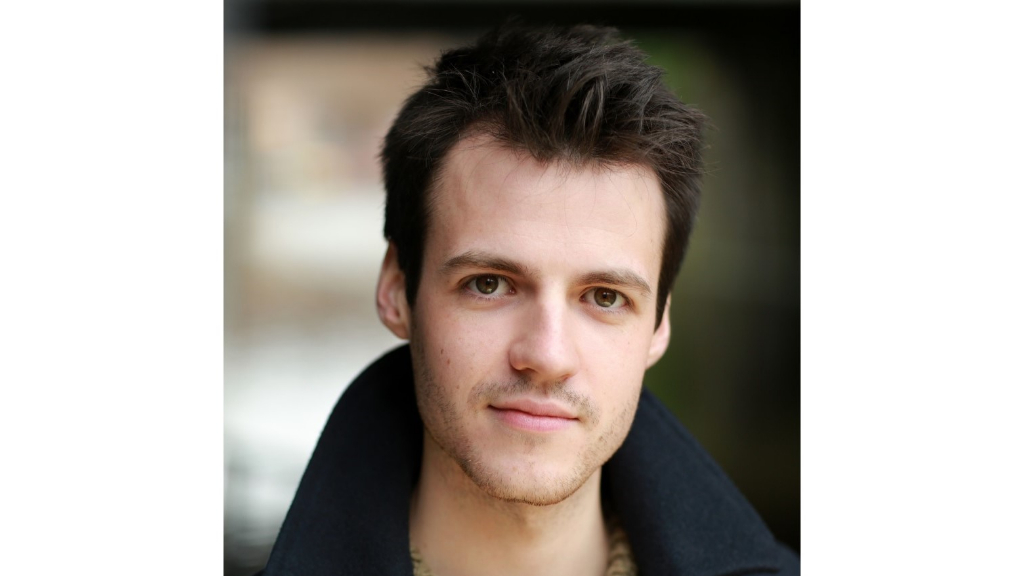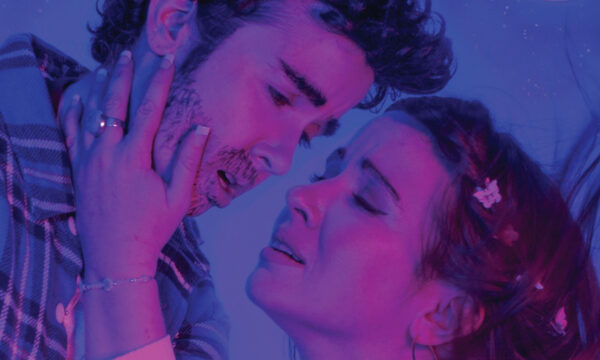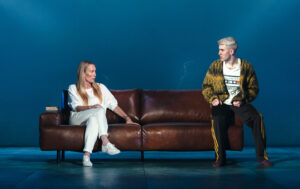“I’ve got lockdown chat fatigue”: An interview with Calum Finlay, host of online interview series Chatterbox

Chatterbox is a new online, interactive interview series, designed to connect youth with renowned artists and industry professionals. Hosted by Playbox Theatre associate artist Calum Finlay, the second season of Chatterbox promises more star-studded interviews and opportunities for young audiences to engage with the arts. During our period of isolation, online interconnection and learning have never been more vital.
We sat down with Finlay to discuss Chatterbox, how the platform reaches its young audience, and his personal experiences as an artist.
Where did the central idea for Chatterbox come from?
I’m an associate artist at Playbox Theatre, a youth theatre in Warwickshire. We were talking about ways in which we could keep young people engaged with the arts during lockdown while embracing an online platform for delivery; we knew we wanted the content to be inspiring and interactive.
What value do you see in Chatterbox in competition against other on-demand arts services such as “Masterclass”, which a lot of young people are currently using?
I think the big value of Chatterbox is that it encourages young people to engage with their local youth theatre rather than a central organisation. For series two we’ve partnered with youth theatres up and down the country who co-stream the live interviews to their own Facebook pages – it looks like the post is being made by that organisation and the members who tune in can’t see where the original live broadcast is coming from, so the engagement stays localised. We’re trying to support youth theatres in their attempts to keep their local communities of young people engaged.
As an actor and writer, what first drew you to this industry?
I grew up in Warwickshire, and I remember going to the RSC as a child and being completely awed by what I saw. Playbox Theatre helped me to realise that working in the arts was a tangible ambition.
You interview the guests each week. How do you prepare before each episode?
For some guests I’ve done a research call, but for all of them I watch and read as much as I can. I’ve usually got questions I’d like to know the answer to – for example, with Paapa Essiedu I was personally interested to know whether or not they’d spoken about race divisions in the UK while working on the American play Pass Over – and then I try and imagine what questions a 15-year-old me would ask. I spend hours trying to pre-empt exactly how the conversation might flow and figuring out how I can guide us through all the topics I’d like to cover without it seeming too ham-fisted.
What do you hope Chatterbox will achieve? What do you want young audiences to take away from the weekly episodes?
I hope it reminds young people that the arts are still there for them; I hope they’re inspired by what they hear; I hope they stay engaged with their local youth theatre as a consequence.
The interviews on Chatterbox are generally centred around the artist discussing their career before lockdown. How relevant or useful do you think their experiences will be for young creatives pursuing a career in a post-lockdown reality?
I’ve got lockdown chat fatigue. It feels impossible to know what the future will hold after lockdown, and I don’t want to put pressure on the guests to feel like they must say something that is in some way prophetic or insightful. From the interviews we’ve done so far I’ve learned that everyone’s routes into the industry, and subsequent career paths, have been wildly different. I hope the apparent lack of formula will give young people confidence to pursue a career in whatever future they might encounter afterwards.
That said, we’re chatting to the Shadow Culture Secretary, Tracy Brabin, on the 10th of July and I’m really looking forward to discussing what we need to do for the arts at a governmental level!
The arts have been one of the industries most affected by the pandemic. What would you say to any new creatives anxious about their prospects and future?
The arts have always been a tough place to earn a living and it’s probably going to get tougher for a little while. Listen to artists you admire talk about the realities of working in the industry and make sure it’s something you need to do. It’s an incredible community of people and, no matter how tough things get, that won’t change.
The arts have kept many people sane in isolation. Do you think lockdown has created more interest in the industry?
I’ve no idea. I thought everyone was going to vote Remain [in the 2016 EU referendum], but that’s because I naively thought my community and their outlook were representative. I’ve been listening to a podcast called The Rabbit Hole from the New York Times which talks about an algorithm on YouTube which means that sometimes you only see one side of reality – I think the success of projects like the NT at Home makes it seem like there is more interest in the industry, but honestly I’m coming to the conclusion that I’ve no idea about what’s really going on in the world. I hope so.
The episodes on Chatterbox feature a lineup of established creators. What do you look for in a guest on Chatterbox?
It’s always just been people whose work I respect.
Chatterbox allows for audience interaction throughout the interviews. Is it a successful feature?
Yes! Because we’re aiming the show at young people, there are lots of safeguarding considerations which mean that, for example, live comments on Facebook aren’t shared between organisations, and we’ve had to disable the “chat” function on the Zoom webinar (which is how we host the interview). I’d love the live interview to be more interactive, but very often the interactions have carried on after the webinar ends. Juliet Stevenson sent voice notes to all of the young people who didn’t have their questions answered. Paapa Essiedu sent messages back and forth with a young person who had asked about barriers into the industry for people of non-white ethnicity. Lucy Phelps helped a young person with her A Level coursework. It’s been incredible.
As a creative yourself, how has the period of isolation due to the pandemic affected you and your artistic process?
The week after lockdown started I was due to begin a two-week workshop, culminating in a pitch performance, for a big new comedy I’ve written. It could have been a huge step forward for my writing for all sorts of reasons and it suddenly didn’t happen. Right now, I should be in New York, a few weeks into the transfer of the Almeida’s Hamlet and Oresteia.
Not only has it been a considerable loss of income but I’ve felt purposeless and lonely. I’ve got friends who have been incredibly productive and have written musicals and rehearsed Zoom plays, but I just haven’t felt creative.
What are your plans for the platform going ahead?
That’s a really good question. We’re thinking about editing some of the interviews and releasing them as podcasts over the summer. Then it’s whether we go for a third series in the autumn. We started the project with short-term ambitions, but we’ve created such a wonderful network of youth theatres and young people that it would be a shame to dismantle it. We’ll see…
Thank you so much for your time!
Emma-Jane Betts
Youth theatres and schools can sign up to co-stream content by emailing the Chatterbox team at Chatterboxpartners@gmail.com
Chatterbox Series 2 runs from 12th June until 31st July 2020 at 4pm weekly. For further information visit the Playbox Theatre’s website here.
























Facebook
Twitter
Instagram
YouTube
RSS